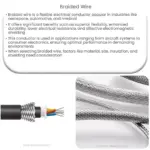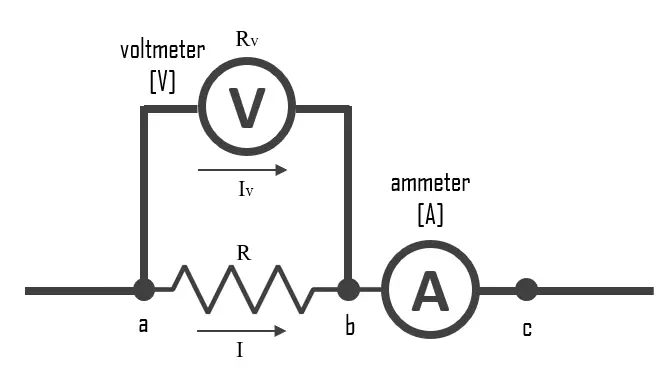Silicone insulated wire offers excellent temperature resistance, flexibility, and durability, making it ideal for high-temperature applications in various industries.
![]()
Silicone Insulated Wire: An Essential Component in High-Temperature Applications
Introduction
Silicone insulated wire is a type of electrical wire designed specifically for use in high-temperature environments. As one of the most versatile and durable types of insulated wire available, it has become an essential component in various industries, including aerospace, automotive, and electronics. In this article, we will discuss the key features, benefits, and applications of silicone insulated wire, as well as factors to consider when selecting the appropriate wire for your project.
What is Silicone Insulated Wire?
Silicone insulated wire is an electrical wire that features a silicone rubber sheath surrounding its conductive core. The silicone insulation provides excellent thermal stability, enabling the wire to function in extreme temperatures, typically ranging from -60°C to +200°C. This wide temperature range makes silicone insulated wire an ideal choice for applications where standard PVC or Teflon insulated wires would not suffice.
Additionally, silicone insulated wire offers impressive flexibility, enabling it to withstand constant bending and twisting without compromising its performance. This characteristic makes it a popular choice for wiring in tight spaces or where frequent movement is expected.
Key Benefits of Silicone Insulated Wire
There are several notable advantages to using silicone insulated wire in your projects. Some of these key benefits include:
- High-Temperature Resistance: The primary advantage of silicone insulated wire is its ability to withstand extreme temperatures. This characteristic makes it an ideal choice for use in applications where temperature fluctuations are common, such as in automotive or aerospace environments.
- Flexibility: Silicone insulated wire is known for its excellent flexibility, which allows it to be easily bent and twisted without compromising its performance. This feature makes it ideal for applications where space is limited or frequent movement is expected.
- Chemical Resistance: Silicone insulated wire is resistant to a wide range of chemicals, including oils, acids, and solvents. This makes it suitable for use in environments where exposure to such substances is a concern.
- Electrical Performance: Silicone insulated wire has low dielectric loss and excellent insulating properties, ensuring optimal electrical performance and reduced signal interference.
- Environmental Friendliness: Silicone is a non-toxic and environmentally friendly material, making silicone insulated wire a more sustainable choice compared to wires with other insulation types.
Applications of Silicone Insulated Wire
Silicone insulated wire is commonly used in a variety of industries, including:
- Aerospace: Due to its high-temperature resistance and flexibility, silicone insulated wire is often used in aerospace applications, such as in the wiring of aircraft engines and control systems.
- Automotive: In the automotive industry, silicone insulated wire is used in engine compartments, sensors, and control systems where high-temperature resistance and flexibility are essential.
- Electronics: Silicone insulated wire is used in various electronic devices and appliances, such as power supplies, transformers, and heating elements, where temperature fluctuations and flexibility are important factors.
Selecting the Right Silicone Insulated Wire
When choosing silicone insulated wire for your project, it is essential to consider several factors to ensure optimal performance and reliability. Some key factors to take into account include:
- Temperature Range: Ensure the chosen wire can withstand the temperatures it will be exposed to in your specific application. Consider both the minimum and maximum temperatures the wire is rated for.
- Voltage Rating: Select a wire with an appropriate voltage rating for your application to ensure the wire’s insulation can handle the voltage levels in your system.
- Wire Gauge: Choose the right wire gauge based on the current carrying capacity required for your project. Keep in mind that thicker wires have lower gauge numbers and can carry more current.
- Conductor Material: Consider the conductor material, such as copper or aluminum, based on factors like conductivity, weight, and cost.
- Jacket Material: In some cases, silicone insulated wires may also feature an outer jacket made of materials like fiberglass or other materials to provide additional protection against abrasion or chemicals.
Maintenance and Safety Tips
Proper maintenance and safety precautions are essential for the reliable and safe use of silicone insulated wire. Here are some tips to help you ensure the longevity and performance of your wire:
- Regular Inspections: Periodically inspect your silicone insulated wire for any signs of damage, such as cracks, cuts, or abrasions. If any damage is detected, replace the affected wire immediately.
- Avoid Overloading: Ensure that your wire is not subjected to currents exceeding its rated capacity, as this can cause overheating and insulation failure.
- Proper Installation: Follow the manufacturer’s guidelines for proper installation, including routing, bending radius, and termination procedures.
- Environmental Considerations: While silicone insulated wire is generally resistant to many chemicals and environmental factors, be aware of any specific chemicals or conditions in your application that may pose a risk to the wire’s performance or longevity.
Conclusion
Silicone insulated wire is a versatile and durable solution for high-temperature applications across various industries. Its exceptional temperature resistance, flexibility, chemical resistance, and electrical performance make it an ideal choice for challenging environments. By considering factors such as temperature range, voltage rating, wire gauge, conductor material, and jacket material, you can select the appropriate silicone insulated wire for your project. Additionally, regular maintenance and safety precautions will ensure the reliable and safe use of your silicone insulated wire, maximizing its performance and lifespan.



